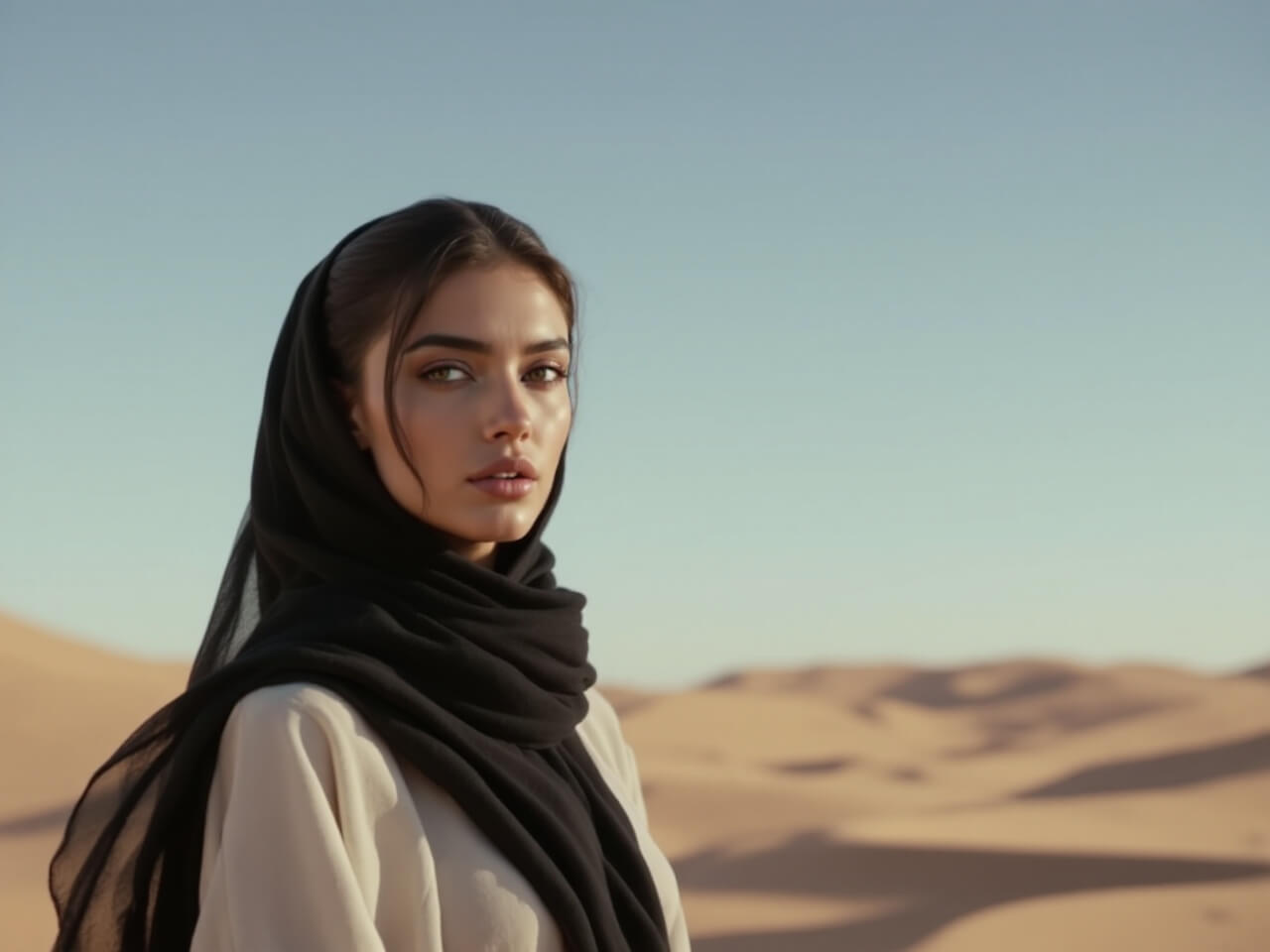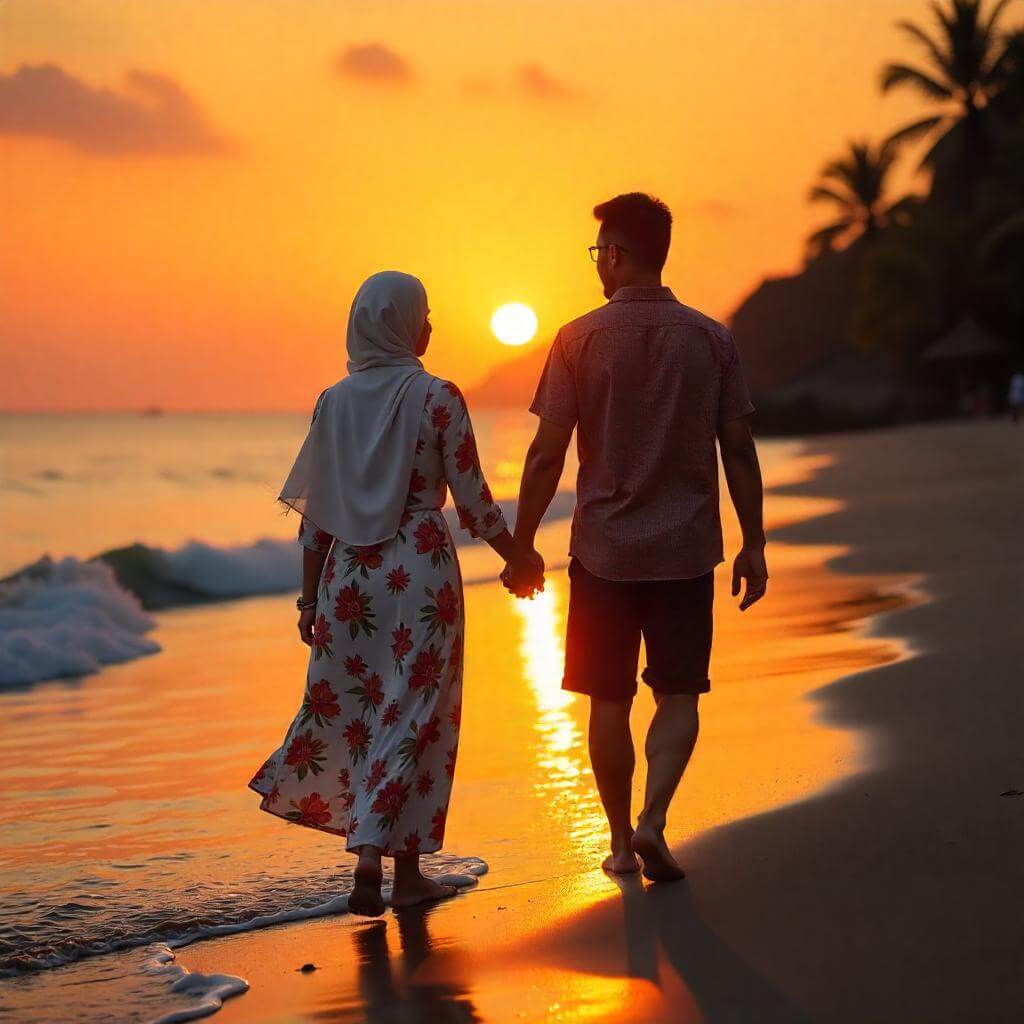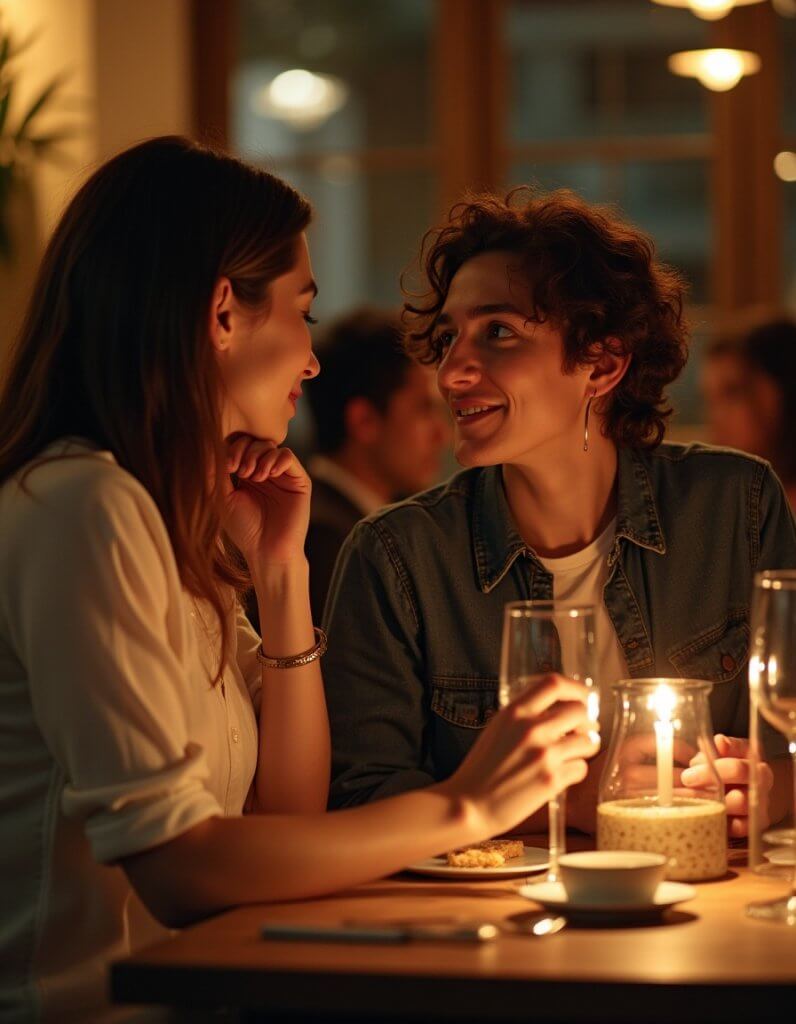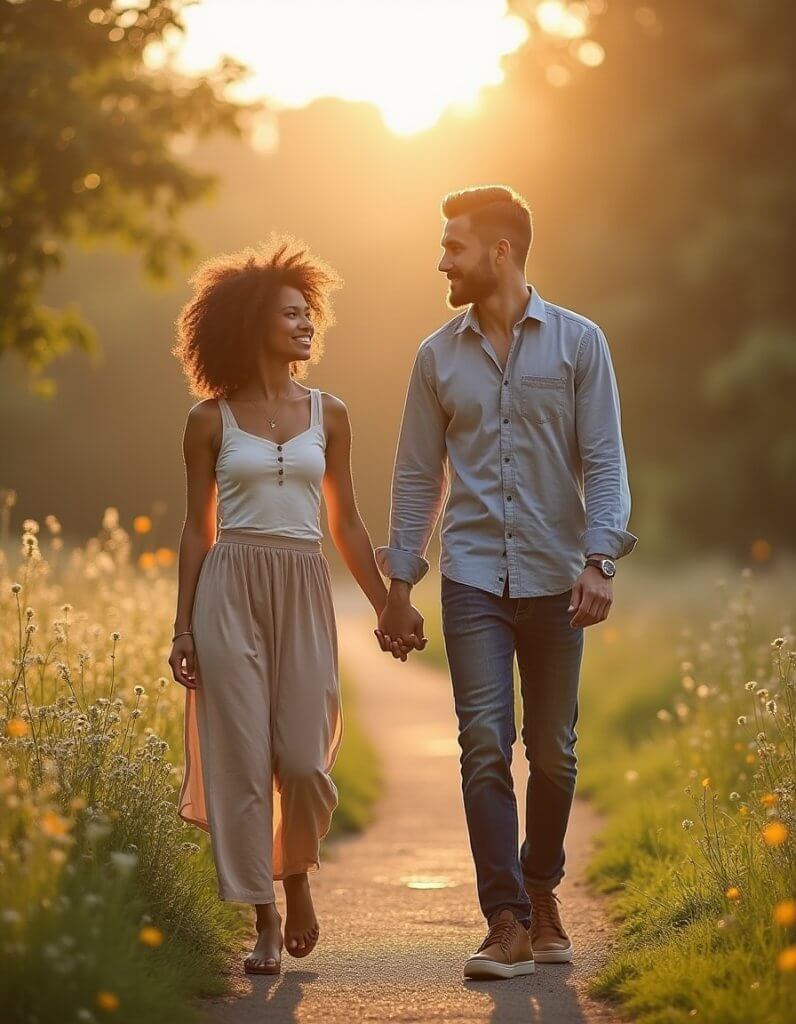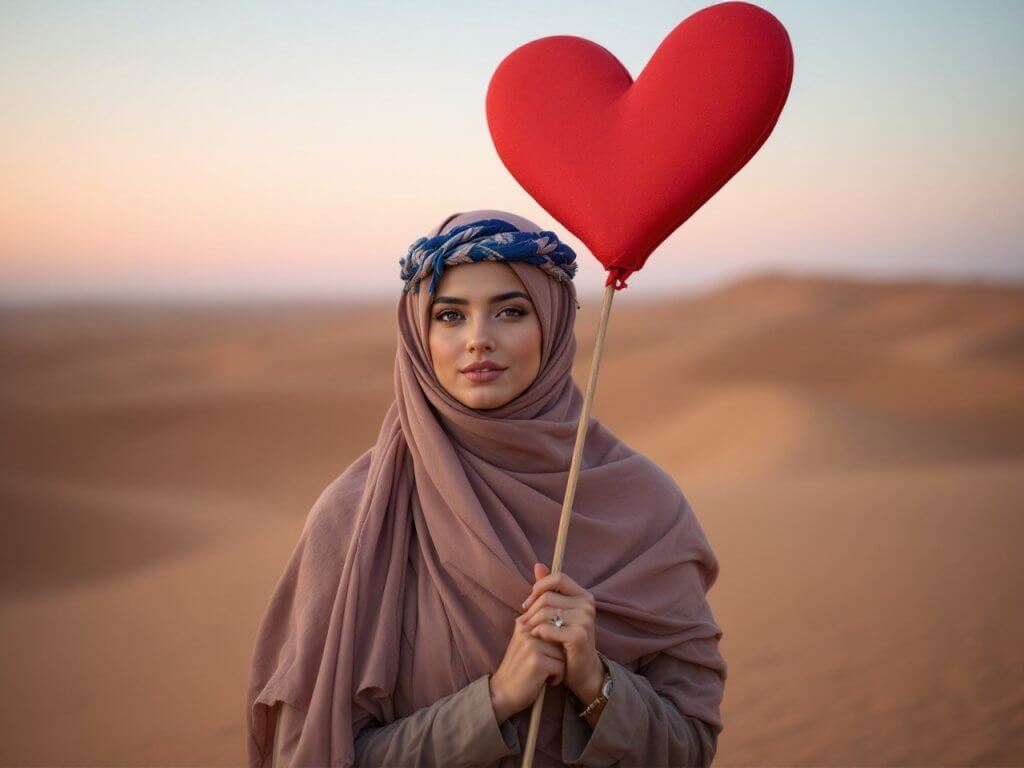
Harbiya band performers celebrate at an Emirati wedding. Traditional ceremonies remain lavish and culturally rich even as the path to marriage modernizes.
In a sparkling Dubai ballroom, two families gather to celebrate an arranged match the old-fashioned way – drums beat and a Harbiya band leads men in rhythmic sword dances under the desert sky. The scene is timeless, steeped in Emirati tradition, yet the journey that brought this couple together was anything but conventional. In today’s United Arab Emirates, marriage remains a cherished institution – “the bedrock of society,” as one matchmaking app founder puts it – but the route to happily-ever-after is evolving at lightning speed. Modern love in the UAE is a complex dance between tradition and change, especially for the Emirati nationals and the millions of expatriates who call the country home.
Matchmakers in a Modern Era
Not long ago, a young woman in Abu Dhabi might leave her future in the hands of a khattaba, a neighborhood matchmaker who would relay biodata and photos between families. These traditional matchmakers – often inquisitive aunties armed with knowledge of every eligible bachelor’s lineage – still exist, but their role is transforming. “Approaching a matchmaker sounds archaic… conjuring up images of inquisitive middle-aged ladies… with a folder full of biodata,” one observer notes . No longer: today’s matchmakers have Instagram accounts and WhatsApp groups. For example, Umm Kawthar, an Emirati mother and renowned khattaba, made the leap from the family majlis to social media – her private Instagram page “UAE Marriage Makers” allows her and a circle of mothers to discreetly post profiles of singles for other families to browse . In just a couple of years, she’s chalked up over a dozen successful matches through this online avenue while still upholding tradition: she insists that prospective candidates or their parents approach her directly, preserving the family’s role in the process . It’s a striking example of how old customs adapt to new tools.
Technology is reshaping matchmaking across the UAE’s diverse communities. A by-product of the country’s multiculturalism is a proliferation of matchmaking services to suit every culture and budget . In the South Asian expat community – where arranged marriages remain common – professional match brokers thrive. Sumeet Merchant, a veteran Indian matchmaker, travels to Dubai to collect profiles for diasporic families from as far as Canada and the US. “Indian and Pakistani men in the US and Canada prefer to marry women from here [the UAE] because they are Westernised but without forgetting their roots,” he explains, noting an enormous demand for brides from the UAE’s expat circles . He’s set up thousands of marriages by helping far-flung families find culturally compatible matches in Dubai’s cosmopolitan melting pot . For Arab expats as well, community-run forums fill the gap – Pakistani teacher Ayesha Sohail started a women-only Facebook group in 2017 to help fellow Indians, Pakistanis, and Bangladeshis find spouses after she saw how newcomers lost their social support networks abroad . By interviewing candidates and even requiring single men to enlist a female relative to vouch for them, her group adds a layer of trust in a free, volunteer-driven setting .
On the other end of the spectrum, high-end matchmaking agencies have appeared in Emirati cities, catering to busy professionals of all backgrounds. These services can come with eye-watering price tags – one elite European matchmaker in Dubai charges tens of thousands of dirhams, offering personalized searches and psychological profiling as part of the package . “When they call me, it’s an emergency – they need someone pre-selected, with the screening done beforehand,” says Angelika Lancsak, an Austrian matchmaker who has served clients in the UAE since the early 2000s . Her clientele is now “80% Muslim” and globally minded, and she prides herself on handling every introduction discreetly and one-on-one . Whether via a boutique facilitator like Lancsak or community websites like Shaadi.com, which many young Indians in the Gulf consider a “blessing” for expanding their pool of prospects , the goal is the same – to find “the one” in a society where most singles ultimately seek marriage, not just casual dating .
Tradition vs. Individual Choice
Despite these modern twists, family remains at the heart of Emirati marriage culture. Parents and elders still typically play matchmaker for their sons and daughters, initiating introductions and vetting suitors. Historically, arranged marriages were the norm, and many older Emiratis recount meeting their spouse only after the formal engagement (if not at the wedding itself). Even today, family consent holds huge importance – marriage is seen as a union of two families, not just two individuals . It’s expected that a prospective groom’s parents will formally ask for the bride’s hand in a ceremony (Al Khoutha), and negotiations over the marriage contract (Al Akhd) involve the extended families . In the past, young people had little say once the families agreed. But in recent years, personal choice has become a bigger factor. Emirati couples are increasingly insisting on meeting and approving their future partner before signing on the dotted line . As one observer put it, millennials now are “opinionated… well-travelled… [and] independent,” and even when parents introduce a match, the couple’s own chemistry and consent can be the deciding factor .
The law, too, has bolstered the right to choose. Under the UAE’s personal status code, a bride’s consent is required for the marriage to proceed, and courts can even override a guardian’s objections if a woman wants to marry a suitable partner . This is a significant shift from earlier generations and reflects the government’s effort to balance Islamic tradition with women’s empowerment. “Marriage is a personal choice and should not be used to satisfy a national agenda,” insists Emirati writer Al-Saad Al-Minhali – a pointed comment in a society that has sometimes treated marriage patterns as a matter of state policy. Indeed, the Federal National Council (FNC) has debated falling marriage rates and urged young citizens to wed fellow Emiratis in service of national identity. When it emerged that more than a quarter of Emirati marriages in 2014 were to non-nationals, officials fretted about the implications for culture and demographics . “If Emirati men marry expats, then who will Emirati women marry?” one FNC member lamented, warning that too many single women could threaten social stability . The government’s response has been a mix of encouragement and adaptation: offering financial incentives for citizen marriages, while pragmatically updating laws to accommodate a diverse society.
Generational Shifts and Gender Roles
The generational divide in the UAE is perhaps most visible in attitudes toward courtship. Many young Emiratis are caught between the expectations of their elders and the influences of a globalized, modern lifestyle. “We’re a little lost between tradition and modernity,” admits Wafa Khalfan, a single Emirati woman in her twenties . “If [girls are] liberal, they’re considered easy, and if they’re conservative, men think they’re too uptight,” she says, describing the frustrating double standard her peers face . Like Wafa, increasing numbers of Emirati women are pursuing higher education and careers, and delaying marriage into their late 20s and beyond. In 1995, only 20% of Emirati women over 30 were unmarried; by 2008 that figure had ballooned to 50%, and today roughly 60% of Emirati women over 30 are single . They are part of a social revolution: these women are more visible in the workforce and public life than any generation before them, yet they navigate a marriage market that hasn’t fully caught up. Surveys of young UAE nationals find many men still prefer a wife who will not work and will prioritize home-making, even as young women increasingly value their independence . This mismatch in expectations can make finding a partner more challenging. “Many girls are all grown up but can’t find a spouse,” Wafa notes – some highly educated women simply do not find a suitable match within the traditional frameworks by the age their parents expected .
Family conventions add further complications. In some conservative families, tribal customs dictate whom one can marry – for instance, forbidding a younger sister from marrying before her elder sister, or disallowing matches to those of a “lower” social strata . Such restrictions shrink the pool of eligible partners. Meanwhile, many Emirati men have options to find spouses abroad, and a significant number are doing so. By the 2010s, roughly one in five Emirati men were marrying non-Emirati women , often drawn to foreign partners for reasons ranging from lower dowry expectations to love met during overseas study. This trend, however, leaves a surplus of single Emirati women – a phenomenon that the UAE leadership views with concern. In a stark proposal, one FNC member even suggested encouraging polygamy as a solution to the “spinsterhood” crisis, an idea that found surprising support in one campus poll (nearly 60% of female students surveyed felt polygamy could be a reasonable solution) . But for the majority of young Emiratis, polygamy is not the answer to their woes. They seek modern marriages built on mutual understanding – something that requires their society to strike a new balance.
Swipe Right, but Keep it Halal: Social Media and Courtship
Smartphone dating apps are increasingly used in the UAE, though often with discretion. Many young singles – both locals and expats – turn to online platforms to expand their prospects, while mindful of cultural norms.
In the UAE’s dating landscape, technology is a double-edged sword. On one hand, dating apps and social media have opened up possibilities that were unthinkable a generation ago. On the other, dating remains a culturally sensitive topic – especially for Emiratis, who traditionally do not “date” openly in the Western sense . The result is an undercurrent of covert romance: “If you’ve ever dared to step outside the matchmaking mold, chances are your love life has played out behind closed doors,” writes one young Emirati woman, likening modern clandestine courtship to a real-life Bridgerton drama conducted in Instagram DMs and private chat rooms . Indeed, long before smartphones, tech-savvy Emirati teens in the 1990s were flirting on MSN Messenger and anonymous web forums – safely out of their parents’ sight . Today, the platforms have changed, but the need for discretion has not. It’s common for couples to meet via Snapchat or an Instagram encounter, then involve families only when things turn serious. Public displays of affection are rare (and until recently could even be legally problematic), so young lovers perfect the art of subtlety.
Still, attitudes are loosening. The pandemic era accelerated the acceptance of online matchmaking. Muzmatch – now rebranded as Muzz – which bills itself as the world’s largest Muslim marriage app, saw a surge of users in the Gulf during 2020 when in-person meetups were limited . “We have been busier than ever since Covid… the taboo [around online dating] is subsiding,” says Shahzad Younas, the British-Pakistani founder of the app . The average user on Muzmatch in the Gulf is about 30 years old, and nearly half of its users in the region are Arab – a sign that even many locals are cautiously experimenting with finding love online . To respect cultural sensitivities, such apps build in faith-friendly features: for example, Muzz allows an option to have a chaperone (often a relative) discreetly cc’d on messages, and provides privacy settings to keep photos hidden until there’s mutual interest . The approach is “unashamedly about marriage,” Younas explains – positioning the app not as a dating free-for-all, but as a modern extension of matrimonial matchmaking . This distinction has helped online platforms gain a foothold in a society where casual dating is still widely frowned upon.
For the UAE’s large expatriate population, which makes up nearly 90% of residents, the dating scene can be both more liberal and more complex. Expats of various nationalities mingle freely in Dubai’s cosmopolitan social life – meeting at work, in bars, or via apps – yet they, too, must navigate local norms and laws. Until 2020, an unmarried couple living together or becoming pregnant out of wedlock risked legal trouble, which added pressure to formalize relationships. (Recent legal reforms have since decriminalized consensual cohabitation, signaling a more pragmatic stance by authorities .) Nonetheless, most long-term expats in the UAE eventually consider marriage, and many face the challenge of finding a partner far from home. “Cut off from native moorings and support systems, many single expatriates find it a challenge to meet a life partner in the constant flux of modern living,” a Gulf News report observed . The same report noted that 91% of UAE residents – locals and expats – described dating as “challenging,” significantly above the global average . In response, expats have eagerly embraced both global dating apps and community-specific matrimonial sites. Western expats might swipe on Tinder or Bumble (which are popular in Dubai’s urban scene), while Arab and South Asian expats often prefer culturally tailored platforms or old-fashioned introductions through community events and religious gatherings. The common thread is that everyone is looking for that needle in the haystack in a transient society.
Money, Matrimony, and Modern Pressures
Beyond love and compatibility, practical challenges weigh on would-be newlyweds in the UAE. High expectations around wedding celebrations and dowries can make marriage an expensive affair – sometimes prohibitively so. In Emirati culture, the groom’s family traditionally provides a mahr (dowry) to the bride, and hosts a lavish wedding feast. Despite a government-imposed cap of 50,000 dirhams (about $14,000) on dowries, many families still demand far more – some over AED 500,000 (≈$135,000) . Add to that the cost of separate wedding parties (often one for men and one for women), jewelry, gifts, and a new home, and it’s no surprise some young men postpone marriage to save up. “One of my friends is still paying his dowry bill – and he’s been married nine years,” an Emirati man in Al Ain quipped, highlighting how long the debt can linger . The government has intervened directly to ease this burden: the Marriage Fund (now managed by the Ministry of Community Development) provides Emirati grooms with a grant of AED 70,000 (around $19,000) for their first marriage, provided they marry a fellow citizen . Mass wedding ceremonies are also organized, where dozens of couples marry in a joint celebration sponsored by the state to cut costs . These measures aim to remove financial barriers and incentivize young Emiratis to choose local partners, rather than, say, a foreign wife with lower dowry expectations.
Economic and social forces affect expatriates as well. Many expat families pour resources into their children’s weddings back home, but if the bride or groom is in the UAE, the celebration might happen on UAE soil – sometimes blending cultural elements. For instance, Indian expats often hold opulent weddings in Dubai, importing Bollywood-style glamour, while Filipinos or Western expats may opt for simpler beachside ceremonies. Yet, legal constraints previously meant non-Muslim expats had to either marry in their embassy or fly to a nearby country (or back home) for a civil wedding if they weren’t marrying in a church or temple. That changed in 2021 when Abu Dhabi passed a groundbreaking law allowing civil marriages for non-Muslims, and by 2023 the UAE extended this option federally . Now, Christians, Jews, atheists or any other non-Muslim couples can tie the knot in a UAE civil court without a religious ceremony – a remarkable sign of legal modernization in a nation that still applies Sharia law to Muslim family matters. In the first year after Abu Dhabi’s law, over 5,000 civil marriages were registered, including couples from abroad drawn by the UAE’s more permissive framework . Such changes reflect the UAE’s delicate balancing act: upholding Islamic traditions for its nationals while accommodating the lifestyles of a global expat community.
Another arena of modernization is health and genetics. With a relatively small national population and historically high rates of cousin marriage, the UAE has faced elevated incidences of genetic disorders. In response, the government recently made premarital genetic screening mandatory for Emirati couples as part of its National Genome Strategy . Since January 2025, thousands of young Emiratis have undergone tests for hereditary diseases before getting a marriage license. The program aims to give couples information to make informed family planning decisions and reduce the risk of passing on genetic illnesses . It’s yet another way the state is involved in marriages – not as matchmaker, but as a guardian of public health for future generations. Along with campaigns for healthy marriages, counseling services, and even courses for newlyweds, it shows how marriage in the UAE is not just a private affair but a matter of community interest.
Between Two Worlds: The Future of UAE Marriage
From the outside, the UAE’s marriage culture might seem full of contrasts – love matches versus arranged matches, sumptuous wedding halls versus courthouse ceremonies, Tinder swipes versus parental introductions. Yet for those living it, these are all facets of one overarching challenge: how to blend the old and the new into a workable formula for modern life. The consensus among Emiratis is that tradition and modernity must coexist. “Arabic is our identity, our culture and our soul,” says cultural commentator Hanan Al Fardan , underscoring that preserving heritage is non-negotiable even as society rapidly changes. That ethos is evident in how marriage practices are adapting. Young couples strive to honor their families’ values – seeking parental blessings, observing customs like the henna night and the Quran reading – while also ensuring their own voices are heard in choosing a partner. As one newlywed put it, “It’s about finding harmony. We did the traditional ceremonies my grandparents expected, but behind the scenes I was the one who ‘met’ my husband online and introduced him to my father.” Stories like hers are increasingly common in the Emirates.
Meanwhile, expatriate residents continue to enrich the marriage landscape with their own customs and innovations. Mixed-faith and cross-cultural marriages are on the rise in hubs like Dubai, creating a patchwork of new family traditions – an Indian-Filipino union here, an Emirati-British wedding there. The legal and social framework is slowly adjusting to this diversity, with the UAE positioning itself as a family-friendly destination for all, whether that means allowing a Jewish wedding to be held openly or recognizing a marriage between two people who followed different creeds. In the words of one Dubai expat who married a local, “You learn to pick and choose – a bit of Emirati protocol, a bit of your own. The result is something unique.”
Ultimately, what emerges from this exploration is a portrait of a society in transition but firmly rooted in family values. The matchmaker – once the literal auntie next door, now perhaps a slick app or a social media group – still plays a pivotal role, proving that the essence of matchmaking survives even when the methods change. As the UAE hurtles into the future with its skyscrapers and smart cities, young people are showing that you can have both Snapchat and sincerity, courtship and consent. Marriage in the UAE is not an institution stuck in time; it’s a living, adapting tapestry. And whether a couple’s journey starts with a hashtag or a family friend’s recommendation, the end goal remains a union that is blessed by family and community. In this fast-changing Gulf nation, love finds a way – threaded through with respect for tradition, yet boldly embracing the possibilities of a new era.


